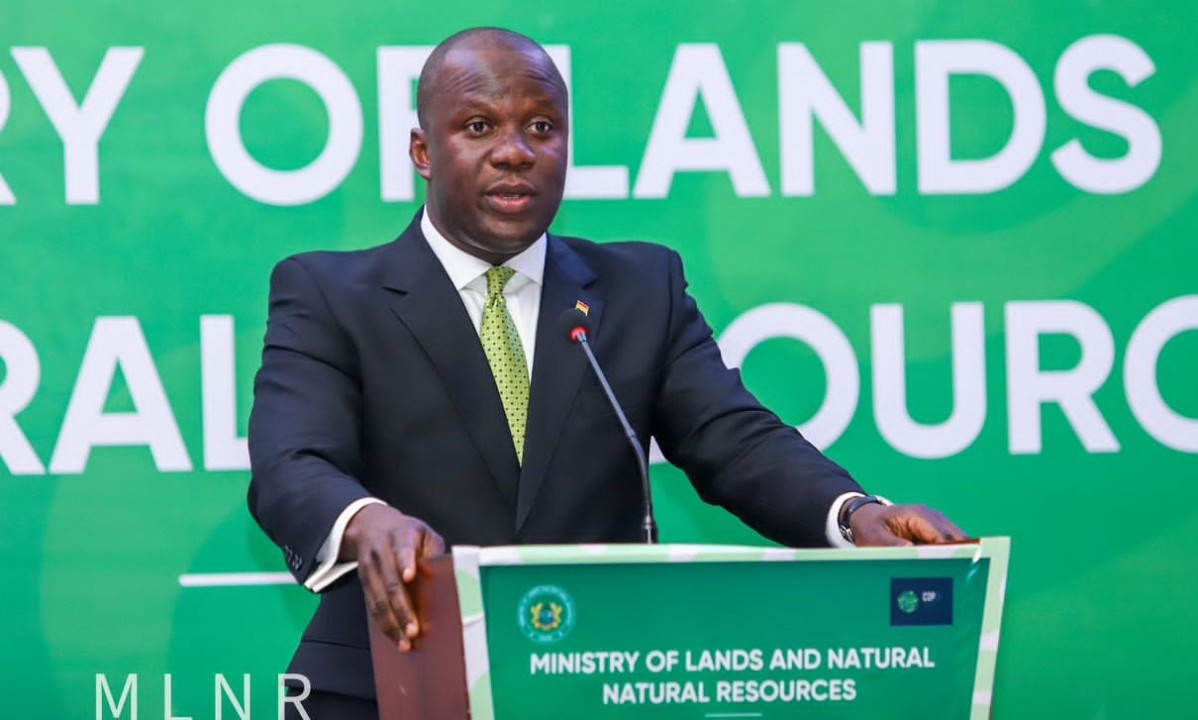Ghana joins Nigeria in bold mining sector reforms


Welcome back to the Vault.
This week, we look at the Ghanaian government’s latest efforts to improve the country’s mining sector. We also analyze Nigeria’s foreign trade performance under former President Buhari and incumbent President Tinubu’s administrations.
Feel free to share your thoughts with us, check out our website for the latest policies, and let us know if you need any insight on public policies, regulations, and guidelines in Africa.

Ghana has recently commenced a review of its mining policy, with the Minister of Land and Natural Resources outlining efforts to stimulate investment in the country’s extractive sector. The new policy targets three main priorities:
The overarching government plan is to expand the range of exportable mineral resources, thereby enhancing government revenue. The focus on value addition aims to boost Ghanaian involvement and promote local ownership in the value chain of the country’s mineral resources. By doing so, the government hopes to create space for the domestic economy to benefit from the income generated through the value addition of mined resources.
This policy overhaul is long overdue, considering the existing mining policy dates back to 2014. The changes are expected to help the government navigate current economic challenges, particularly in increasing domestic production and improving government revenue. The economic crises in recent years saw the government default on its debt obligations in 2022, alongside an 82% depreciation of the domestic currency relative to the US dollar.
This extractive sector reform aligns with the government’s broader strategy to enhance government revenue. The extractive sector is projected to grow by 6% from 2024 to 2026.
Nevertheless, several potential challenges need to be addressed. First, there is a need to establish a clear framework to prevent corruption, which has been prevalent in gold mining, from impacting other mined resources. Furthermore, enhancing local participation requires improving the local capacity—infrastructure and technical— in the industry to fully realize the benefits of value addition to mined resources.
Nigeria initiated its own mining sector reform in 2023, bringing the discussion to the forefront of policy topics in recent weeks. A new mining sector policy is currently being drafted with the aim of developing the sector by:
Additionally, a proposed amendment by the country’s lawmakers includes changes to the Minerals and Mining Act to:
These proposed policies offer several benefits, such as attracting Foreign Direct Investment (FDI), addressing illegal mining, diversifying the economy beyond the oil sector to reduce economic volatility associated with the global oil market, and increasing government revenue.
Notwithstanding these benefits, a challenge the government must address is insecurity. Armed bandits and community conflicts have hindered activities in numerous mining communities. Additionally, like Ghana, there is a need to enhance local capacity in the non-oil sector if the goal is to diversify the extractive sector beyond crude oil.
Seven months into President Tinubu’s regime, Nigeria experienced a significant increase in foreign trade in goods. In Q4 2023, the value of goods traded increased by 128.6% to N26.8 trillion, compared to N11.7 trillion in Q3 2022. However, the import value grew even more rapidly, rising by 163.1% (year-on-year) to N14.1 trillion in Q4 2023, resulting in a trade deficit of N1.4 trillion. The rise in the import value is primarily driven by the depreciation of the exchange rate due to foreign exchange reforms by the Central Bank of Nigeria.
Also, the value of exports in Q4, 2023 increased by 99.6% compared to the value recorded in the corresponding quarter under former President Buhari. This is attributable to a 73.8% surge in the exportation of crude oil (N4.9 trillion in Q4, 2022 and N8.5 trillion in Q4, 2023).

What policy and insight do you seek?
Whether you are a government official, civil society organization, or researcher, our repository provides comprehensive access to public policies, regulations, and guidelines across Africa. We provide insights and intelligence on these regional policies and regulations for research, advocacy, policymaking, and investing.
Get in touch with us here: <mailto:team@policyvault.africa>.

We’re also tracking the latest current events in the news, and how they may affect the decisions of policymakers. Below are some of the latest developments.
Somalia | Somalia and Turkey sign energy cooperation deal
Turkey and Somalia signed an offshore energy cooperation deal in Istanbul, deepening Turkey’s involvement in the Horn of Africa despite tensions over Somaliland. The agreement aims to facilitate collaboration in the exploration of oil and natural gas in the offshore areas of Somalia. The deal includes transportation, distribution, refining, sales, and services operations of oil and other products from land and sea projects.
Mauritania | EU signs agreement to help Mauritania stop Europe-bound migrants
Last Thursday, Mauritania signed a migration deal with the European Union to address the surge in migrants embarking on the dangerous journey across the Atlantic Ocean to Spain’s Canary Islands. The partnership includes support for border management and legal migration.
Sudan | Military rejects ceasefire
The Sudan military has affirmed that there will be no ceasefire during Ramadan unless specific conditions are met. The major demand from the military is Rapid Support Forces (RSF) withdrawal from civilian and public areas, based on a commitment made in mediated talks last May.
Visit www.policyvault.africa to check some of our recently published insights, which provide you with deeper analysis and context of matters at the intersection of public policy and current events.